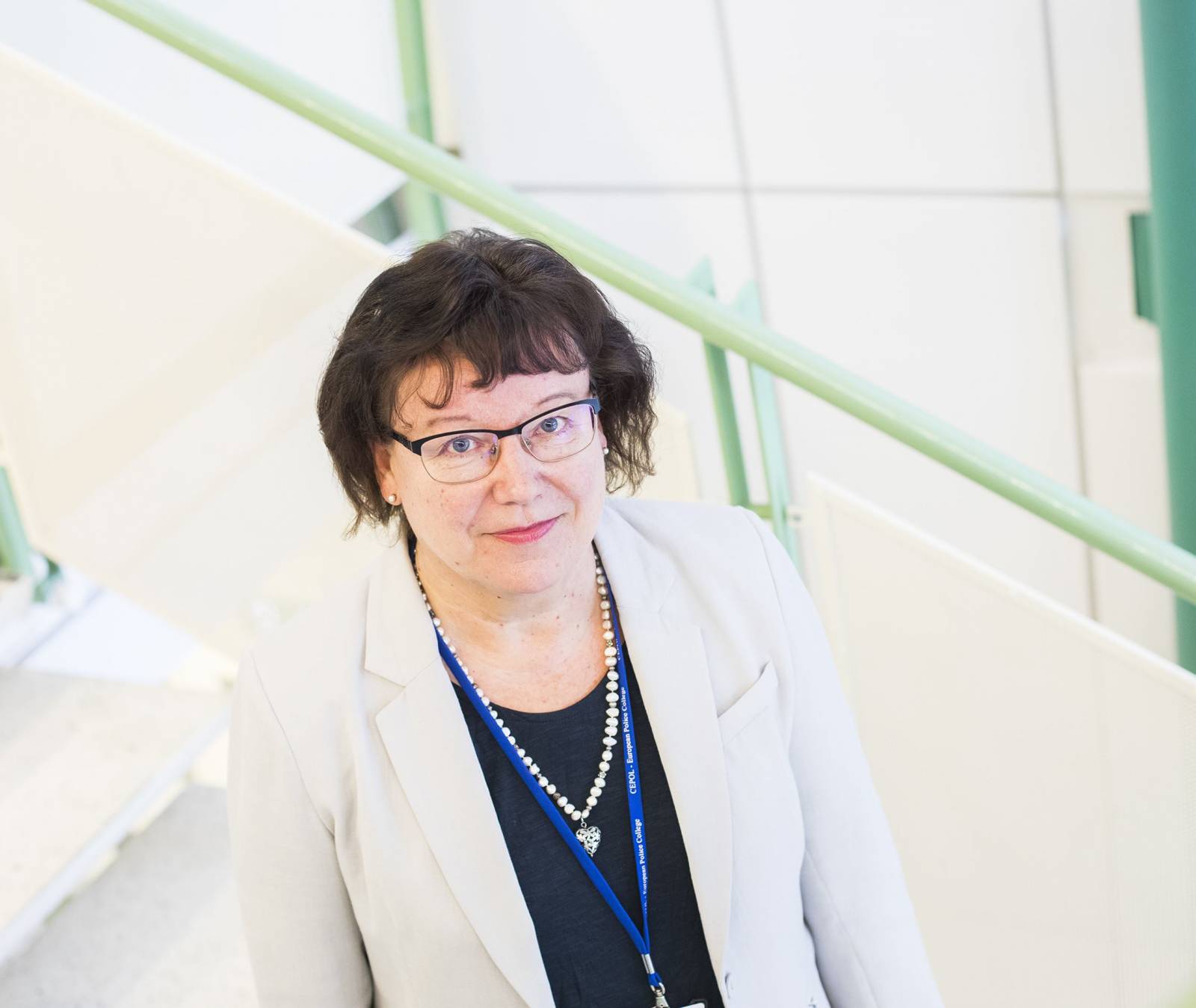Making a positive impact on society is an important part of working as a professor
Universities provide education and carry out research to make a positive impact on society. I have never quite understood why societal impact is in a category of its own or how it can even be separated from the other activities of a university. When preparing an annual work plan, it is next to impossible to estimate the amount of time set aside for the delivery of impact, because it is so closely integrated into teaching and research. The time spent attending meetings, giving presentations or drawing up expert statements is not a good indicator, but teaching and research activities cannot be grouped under societal impact, as it would then account for almost 100% of the annual working hours. Research generates new knowledge that informs teaching and is thereby shared with the wider world. External stakeholders sit on research steering committees and act as research participants and contribute to teaching by giving guest lectures, hosting interns and recruiting students.
Interacting with society has been an important part of my duties ever since I embarked on a research career and worked on multiple research projects headed by Professor Olavi Borg in the Department of Political Science in the late 1980s and early 1990s. The delivery of impact on society was built into these projects – which were funded by the Ministry of the Interior of Finland and police trade unions – because the key interest groups were represented on the project steering committees. The first research reports explored, among other things, the societal impact of the police and its assessment. Based on the results, the Ministry of the Interior developed assessment methods, and the findings were also utilised to develop staff training and police education. Professor Borg’s broad network of contacts included policymakers, administrative organisations and associations and therefore helped to increase the visibility, weighting and impact of both the team’s researchers and their research results. I was excited to be making a positive impact on society, which also enabled me to quickly expand my network of contacts. Since 1995, I have served in a specialist role on countless development committees and strategic planning committees of the Ministry of the Interior, the Ministry of Justice and the Ministry of Defence.
Teaching and developing security governance
Although my academic career has been fragmented, as careers in research have a tendency to be, I have always been able to study and teach security governance, my main area of interest. In 1998, the former University of Tampere became the first university in Finland to start offering education in security governance. This is one of the reasons why I have also been closely involved in developing education in security governance and management in higher education institutions that educate professionals in this field in Finland, namely the Police University College and the National Defence University.
I joined the Boards of the then Police School and the Police College in 2001 and have served ever since on the Board of the Police University College (Polamk) which was later created by merging the two. Membership in Polamk’s Board has given me a front-row seat to the development of police training and also more broadly to education in the field of security governance both in Finland and abroad. During my Board membership, I have seen the merger of the former Police School and Police College, the relocation of Polamk from Espoo to Hervanta, the internationalisation of education, the expansion of research activities, the development of degrees in accordance with the Bologna process, and the approval of curricula, student intake numbers and admission requirements.
While the Advisory Board of the National Defence University does not have a similar status or decision-making authority as a Board, it has a major role in developing education, promoting research collaboration and otherwise making an impact on society. I have served on the Advisory Board for two three-year terms since 2012. In addition, my docentship in the Department of Leadership and Military Pedagogy at the National Defence University has, in particular, opened doors to influencing organisations where a defence perspective on security governance is also a priority.
Making an international impact
Making an impact in the international sphere cannot be placed in a distinct category either. Maintaining a presence in international research networks, engaging in research collaborations and co-authoring publications with foreign universities and colleagues, and providing education within the framework of the EU are all examples of this type of activity. Since 2010, I have served as a Short time expert in the Police and Prisons Unit of the Council of Europe’s Human Rights Capacity Building Department. My first assignment was to participate in developing the curriculum of the police academy of Moldova. This took place for a month in Chisinau as part of an EU project to democratise the police in Europe. The European Commission’s Terrorism Working Group (TWG) has invited me a couple of times to deliver specialist presentations at its meetings held in Brussels. There are so many forums for delivering impact for society.
My most high-profile international assignments have been commissioned by the European Union Agency for Law Enforcement Training (CEPOL). CEPOL was established at the Council of Europe’s meeting in Tampere in 1999. In the past few decades, I have travelled widely in the role of lecturer, course director and representative of research and teaching in the field of law enforcement. I have spent 2-6 weeks abroad on an annual basis and visited most of the EU countries. International collaboration has had a tremendous positive impact on the development of teaching and research in safety governance and now the Master’s Degree Programme in Security and Safety (SAFER).
In the spring of 2021, I received the largest number of votes from CEPOL’s Management Board and was elected to join and chair the Selection Committee tasked with selecting CEPOL’s new executive director. The Selection Committee also includes representatives of three other EU countries and the European Commission. It was delighted to join this prestigious international committee and have a chance to influence the future direction of pan-European law enforcement training. Europe is facing increasing challenges relating to migrant smuggling by organised criminal groups, human trafficking, cybercrime and violent extremism. My role as chairperson of the Selection Committee entails convening weekly meetings with the chair of CEPOL’s Management Board and the European Commission’s representative to keep them up to date with progress, making sure the consultants at the Assessment Center have access to the latest information, and planning and conducting interviews together with the team and with support from CEPOL’s HR department. The past autumn has been most interesting and has added a great deal of variety to my day-to-day teaching.
Idealist in academia
Being a social scientist and a teacher and researcher who specialises in administrative and political sciences and safety, one of my main missions has always been to contribute to creating a better world. Making an impact on society is a great way to make the world a better place – one step at a time.
This article was originally published in MAB-faculty Newsletter 10/2021.
Sirpa Virta is professor (security governance) and Head of Programme in the MD Programme in Security and Safety Management at the Tampere University.


